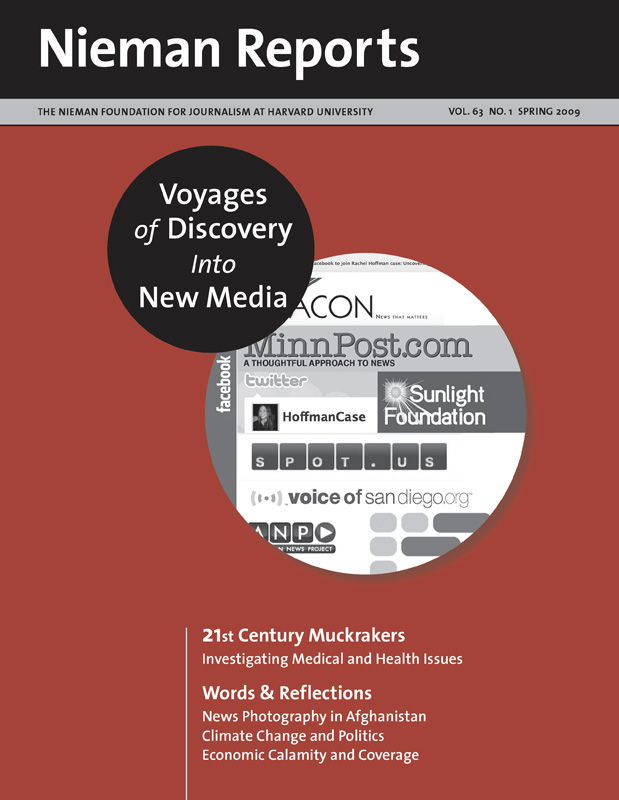If data talked, oh, the stories they could tell. Today, enterprising reporters are “listening” to what data can tell them. By harnessing technology’s tools, they dig with increasing speed and thoroughness through stacks of numbers and reams of documents, and what they find forms the foundation for their investigative efforts. Once absorbed, the data create a trail to the men and women (and companies) whose motivations and actions bring to storytelling life what numbers can only sketch. When reluctance to cooperate is encountered, data step in again to refresh memories and prod the story forward.
For centuries, those seeking to expose malfeasance have followed much this same data-driven course, albeit with less precision and more effort. In this collection of stories, journalists describe contemporary watchdog methods. With their coverage they’ve informed people’s medical judgment and protected their health, whether jeopardized by misleading pharmaceutical campaigns or by the lack of mandated oversight by government officials and agencies.
All of this requires time, human capital and resources, all of which are endangered by newsroom cuts and pressures to produce more with less. When data mining can’t begin because public documents are withheld, costly legal action may be needed to pry them loose. Or copying costs might be prohibitive for reporters who are working on their own. Absent support from a news organization, secrecy can triumph. As Joe Mathews, a former Los Angeles Times reporter, wrote in “The Morgue: A reporter’s elegy for his dying paper” in The New Republic, “With fewer watchdogs, you get less barking. How can we know what we’ll never know?”
So when a major news organization eliminates its science, technology and environment unit as a cost-cutting measure, as CNN did in the waning days of 2008, is there reason for concern? (Four of the world’s largest science and environmental journalism groups felt there was and sent their first-ever joint letter protesting the cuts.) Expertise of this kind continues to be shed at newspapers and broadcast outlets. (To find out what it’s like to win a George Polk Award and be told at the same time that the investigative unit you work with is being eliminated and you no longer have a job, read Roberta Baskin’s story.) Can independent journalists afford to do this kind of intensive reporting? (To get a glimpse of this possibility, read Loretta Tofani’s story. Having won a Pulitzer for her investigative work in the early 1990’s, she now despairs of being able to do this kind of reporting again.) Will emerging digital entities fill this essential reporting gap? Or perhaps citizen journalists and agitated members of social media communities—helped along by foundation-supported reporting tutorials and grants—will unearth these kind of problems.
While answers await, we can only hope that what we’ll never know won’t harm us.


